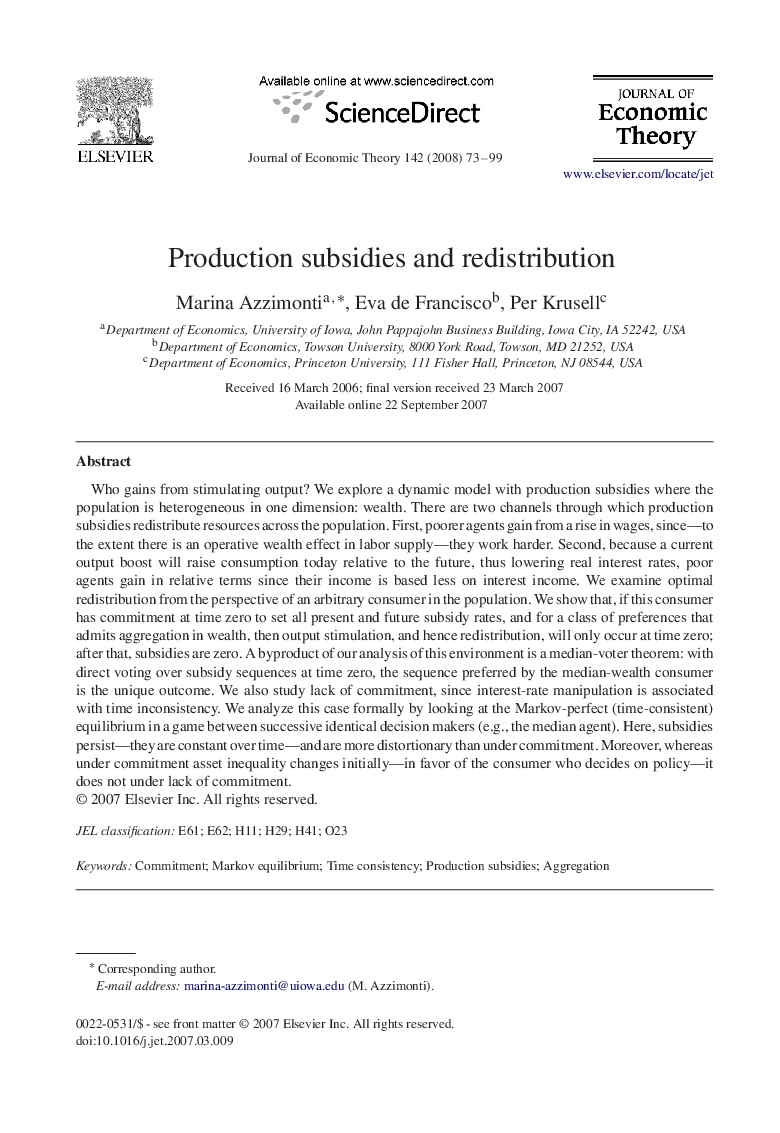| Article ID | Journal | Published Year | Pages | File Type |
|---|---|---|---|---|
| 957262 | Journal of Economic Theory | 2008 | 27 Pages |
Abstract
Who gains from stimulating output? We explore a dynamic model with production subsidies where the population is heterogeneous in one dimension: wealth. There are two channels through which production subsidies redistribute resources across the population. First, poorer agents gain from a rise in wages, since-to the extent there is an operative wealth effect in labor supply-they work harder. Second, because a current output boost will raise consumption today relative to the future, thus lowering real interest rates, poor agents gain in relative terms since their income is based less on interest income. We examine optimal redistribution from the perspective of an arbitrary consumer in the population. We show that, if this consumer has commitment at time zero to set all present and future subsidy rates, and for a class of preferences that admits aggregation in wealth, then output stimulation, and hence redistribution, will only occur at time zero; after that, subsidies are zero. A byproduct of our analysis of this environment is a median-voter theorem: with direct voting over subsidy sequences at time zero, the sequence preferred by the median-wealth consumer is the unique outcome. We also study lack of commitment, since interest-rate manipulation is associated with time inconsistency. We analyze this case formally by looking at the Markov-perfect (time-consistent) equilibrium in a game between successive identical decision makers (e.g., the median agent). Here, subsidies persist-they are constant over time-and are more distortionary than under commitment. Moreover, whereas under commitment asset inequality changes initially-in favor of the consumer who decides on policy-it does not under lack of commitment.
Related Topics
Social Sciences and Humanities
Economics, Econometrics and Finance
Economics and Econometrics
Authors
Marina Azzimonti, Eva de Francisco, Per Krusell,
